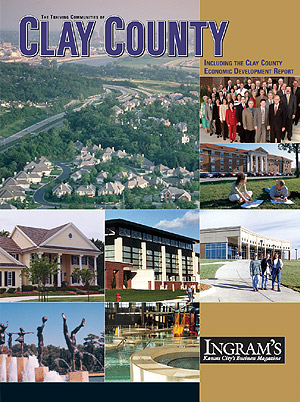Responsible Growth in KC’s Northland
 Here’s something you should remember about Clay County: It is not named for the thick clay that forces anyone with lawn and garden plans to haul topsoil.
Here’s something you should remember about Clay County: It is not named for the thick clay that forces anyone with lawn and garden plans to haul topsoil.
Clay County is named after Henry Clay, the “Great Compromiser” of 19th Century America and, like most early Clay Countians, a Kentuckian with roots in Virginia.
What is important about this history lesson is that Clay County is often not what it seems, and “compromise” is not necessarily a bad word to those in this portion of the Kansas City metro area.
The latest bloomer of the region’s major counties, Clay County is starting to see the dramatic growth that had been predicted for decades. According to 2001 Census figures, it boasted a population of just over 188,000, which ranked seventh in the state and represented an annual growth of 2.3 percent, about four times the state average. More dramatically, it contains some of the fastest growing areas of the entire metropolitan region, including the Shoal Creek Valley.
That urban growth is only part of the story. Some of the most significant residential development during the 1990s occurred in Clay County’s unincorporated areas. Between 1990 and 1998, census figures actually showed that the percentage of growth in rural Clay County outstripped in-town expansion.
The migration to rural Clay County is telling in terms of the area’s personality. This is an area where residents favor “small town” values, even when they live in a big city. This unique viewpoint is emphasized in part because less than half of Clay County’s nearly 400 square miles is developed.
Clay County’s status as a regional visitors and tourism destination is also unique. Recreational and historical attractions include major amusement parks, a large recreation lake, riverfront casinos and internationally outlaw Jesse James. Like the area’s clay, Jesse is not always loved, but his popularity is definitely something to build on.
Interesting Tidbits About Clay County
Living In Clay County
Recreation
Tourism
Prime Location & Transportation
Economy & A Thriving Growth
The Workforce
The Clay County Master Plan
Health Care & Community Service
Education
Higher Education
Residential Real Estate
Retail & Commercial Real Estate
Industrial Real Estate
Clay County Economic Development Report